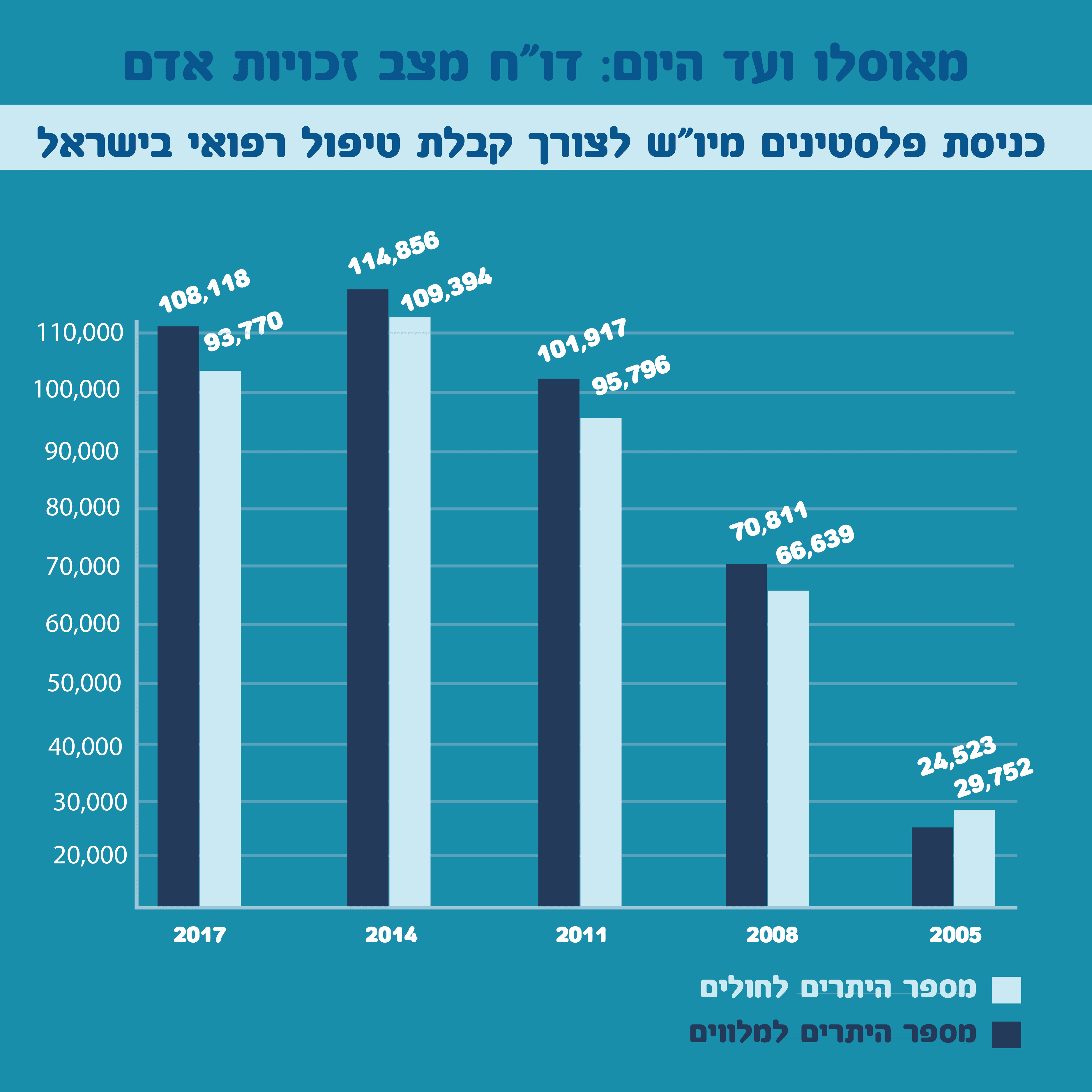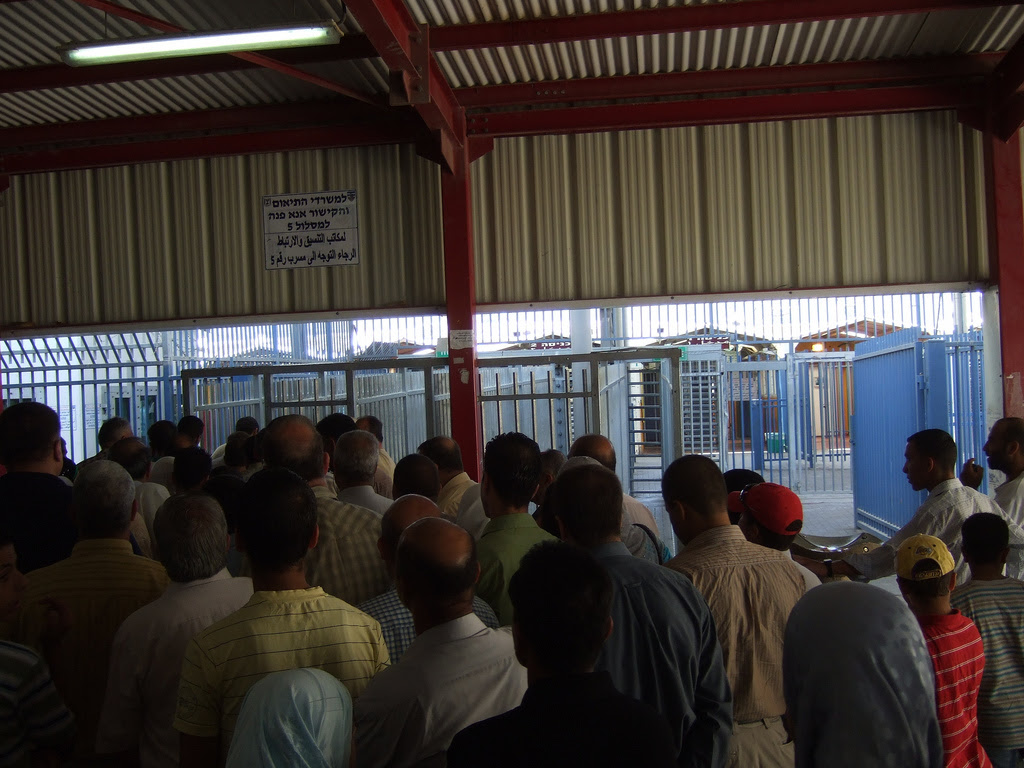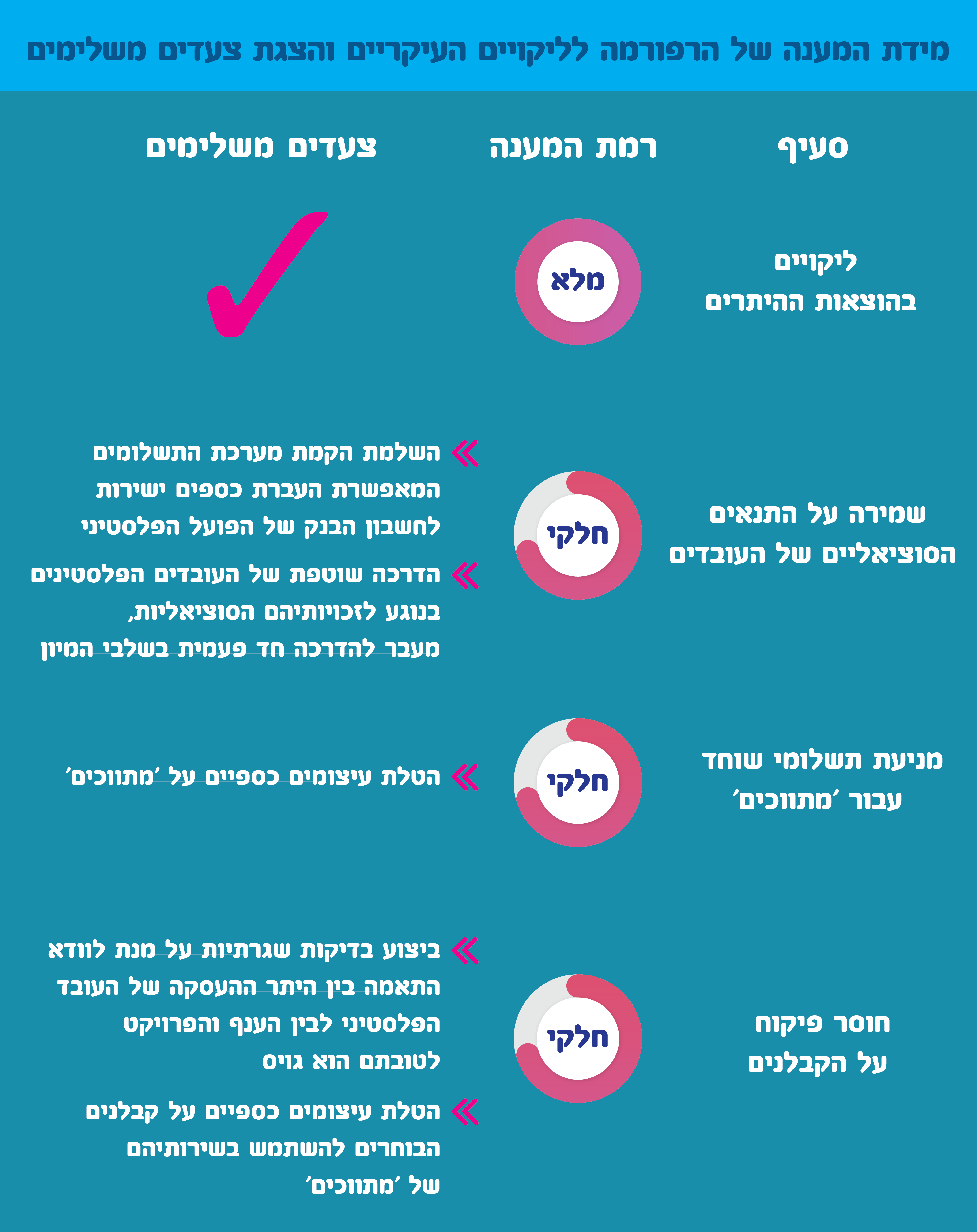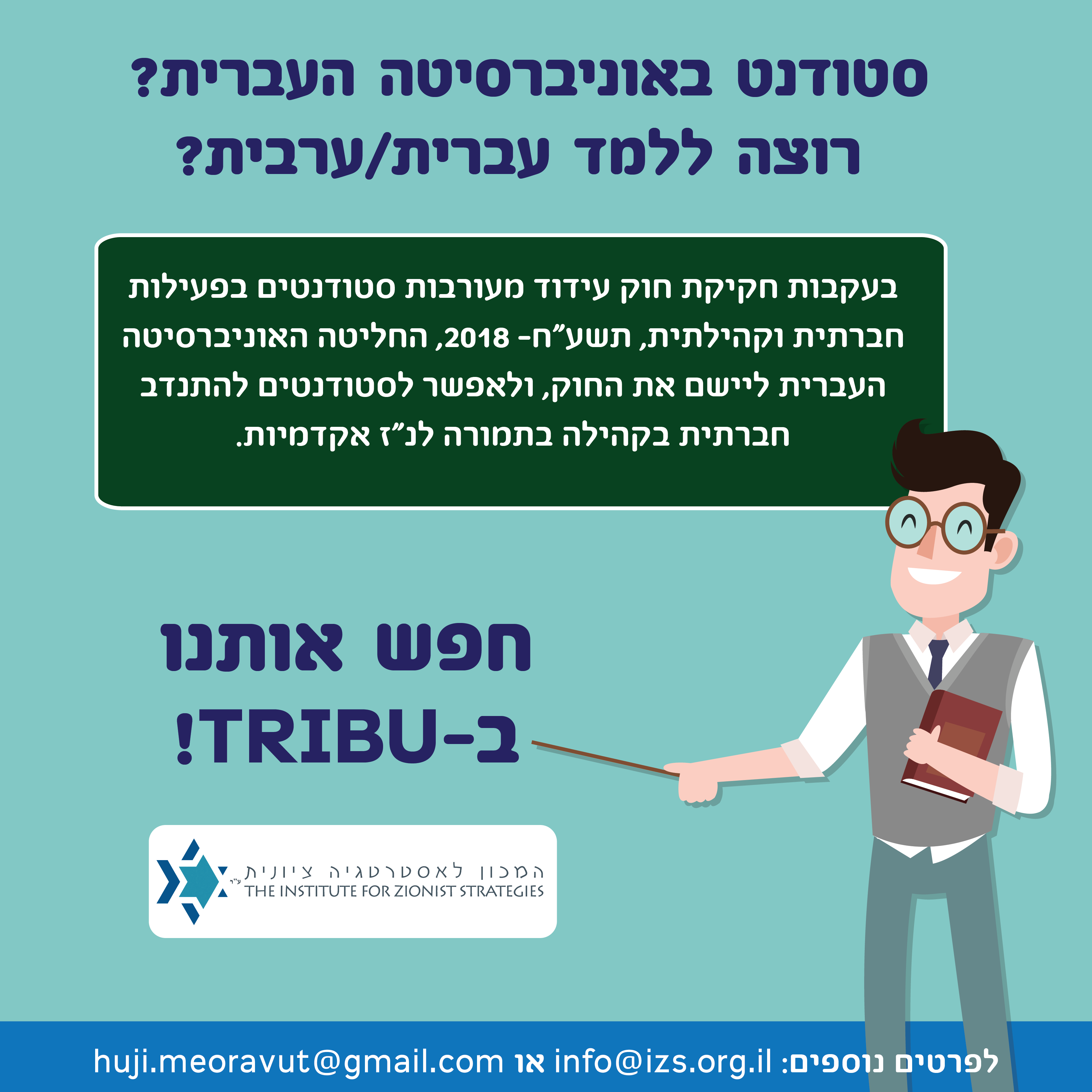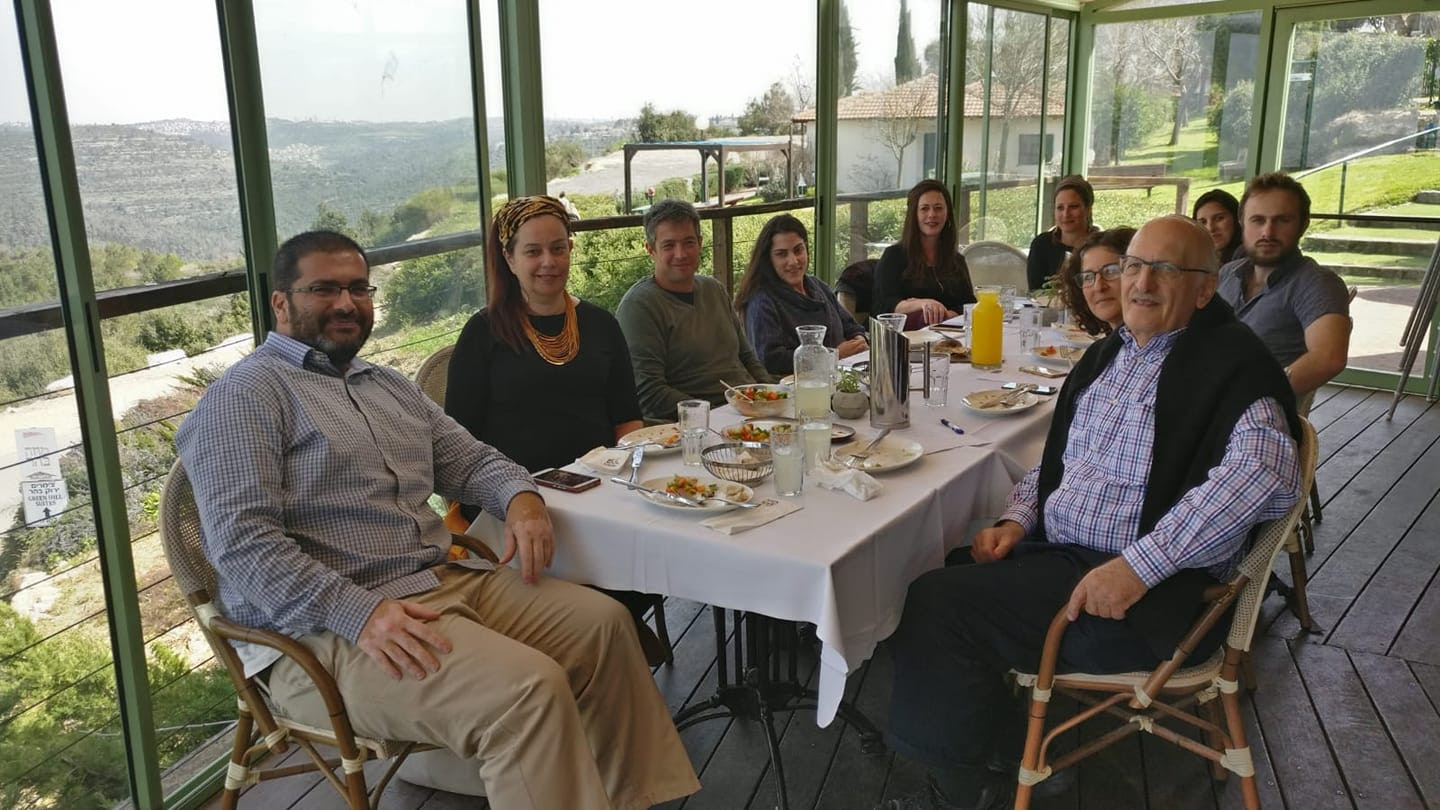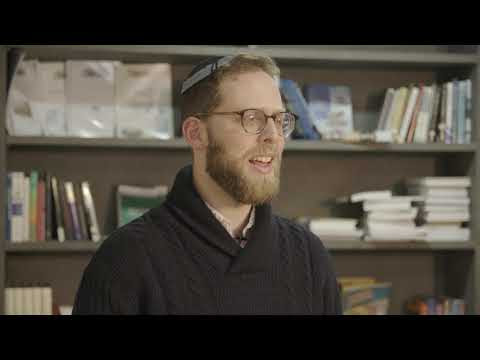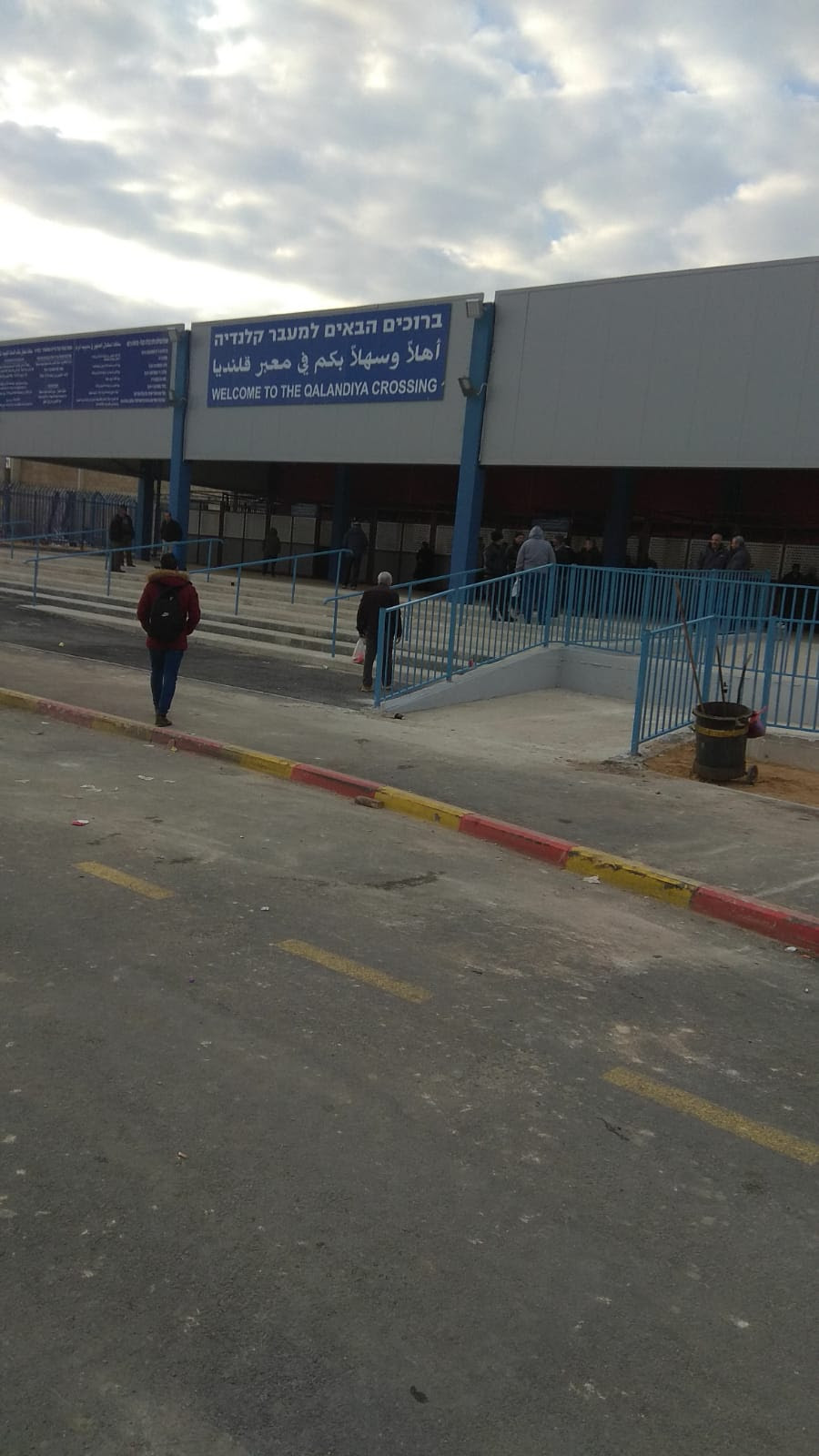This study conducted a broad survey of three human rights issues in Judea and Samaria: employment of Palestinians in Israel, treatment of Palestinian patients in Israeli hospitals, and the functioning of the crossing points. The study examined the Israeli policy for each of the three issues and the implementation of that policy since the Oslo Accords until today, 25 years after the agreements were signed. The main findings are presented below:
Employment of Palestinians in Israel
The general trend in Israeli policy since Oslo is one of increased employment and economic cooperation between Israel and the Palestinian Authority. In the eyes of the Israeli government, as long as the security situation allows it, the economic cooperation expressed by an increase in the number of Palestinians employed in Israel leads to positive results, both from an economic and security perspective. Nevertheless, flaws were found in the manner of employment and in the protection of employees’ rights.
- Since the Oslo Accords and until today, there has been a general trend of increased numbers of Palestinian employees in Israel, except for isolated exceptions, most of which occurred during sensitive periods from a security perspective. In 1996, the number of work permits stood at approximately 25,000, in 2011, this figure had risen to about 37,000, and by 2017 had reached 85,000.
- Flaws were found in the current employment method which resulted in an infringement of the Palestinian workers’ rights to social benefits: improper employment contracts, a lack of provisions for retirement, and ineligibility for vacation and sick allowance.
- In order to rectify the flaws, the government decided in 2016 on the implementation of a reform in the manner of Palestinian workers’ employment that included a placement program for Palestinian workers and the option of limited entry into Israel without the need for a request from an employer. A series of other steps aimed at guaranteeing the workers’ rights was also introduced.
Receipt of Medical Treatment in Israel
The area of medical treatment received by Palestinians in Israel has also been characterized by a trend of increased cooperation. This trend was due to diplomatic, security, economic, and moral reasons. At the same time, the congestion caused in certain departments because of treatment given to Palestinian patients, as well as the Palestinian Authority’s huge debt owed to Israeli hospitals, constitute a significant burden which requires immediate attention.
- Between 2003-2017, there was a marked increase in the number of entry permits given to Palestinians in order to receive medical treatment in Israel. The number of permits rose from 19,488 in 2003 to 93,770 in 2017.
- The hospital departments with the highest number of Palestinian patients are the pediatric departments. A study conducted by the Knesset Research and Information Center found that 51% of all Palestinian hospitalization days were in departments designated for children.
- The Palestinian Authority refrains from transferring full payment for the treatments and has accumulated a huge debt to Israeli hospitals. A study conducted by the Knesset Research and Information Center revealed that in 2017 the Palestinian Authority’s outstanding debt to hospitals in Israel stood at approximately 40.36 million shekels.
- In recent years, the proportion of permits for treatment in hospitals throughout Israel rose compared to that of the permits issued for treatment in East Jerusalem hospitals.
Crossing Points between the Palestinian Authority and Israel
Reports issued by the State Ombudsman and ongoing reports prepared by the Institute over recent years, have revealed findings regarding flaws at the crossing points from Judea and Samaria. The main finding requiring attention is related to the completion of the civilianization process (the replacement of soldiers with civilian staff in the management of the crossings). It seems that rectification of this shortcoming would result in better service and a high level of security for those using the crossings. Until then, specific congestion can be alleviated by opening additional crossings during peak hours, such as opening the Beitar Crossing for workers during morning hours, a step that would lessen the burden on the Rachel Crossing. Increasing personnel would also enable the opening of additional “sleeves” whenever the congestion increases.
- Since the decision in 2005 regarding civilianization of the crossings, 13 of the 33 crossings have been fully civilianized. There are 16 more crossings in the Jerusalem periphery where only security is civilian and 4 IDF crossings that have yet to be civilianized.
- Civilianization of the crossings has led to better and more efficient functioning and to a higher level of service provided to their users. According to the report of the Land Crossings Authority, the waiting time during peak hours does not exceed 20 minutes at any of the civilianized crossings. By contrast, at the crossings yet to be civilianized, an Institute report found waiting times of between 30-60 minutes.
- In light of the increased use of the crossings over the years, infrastructures have been upgraded at the various crossings. The rate of these works is faster at civilianized crossings.



